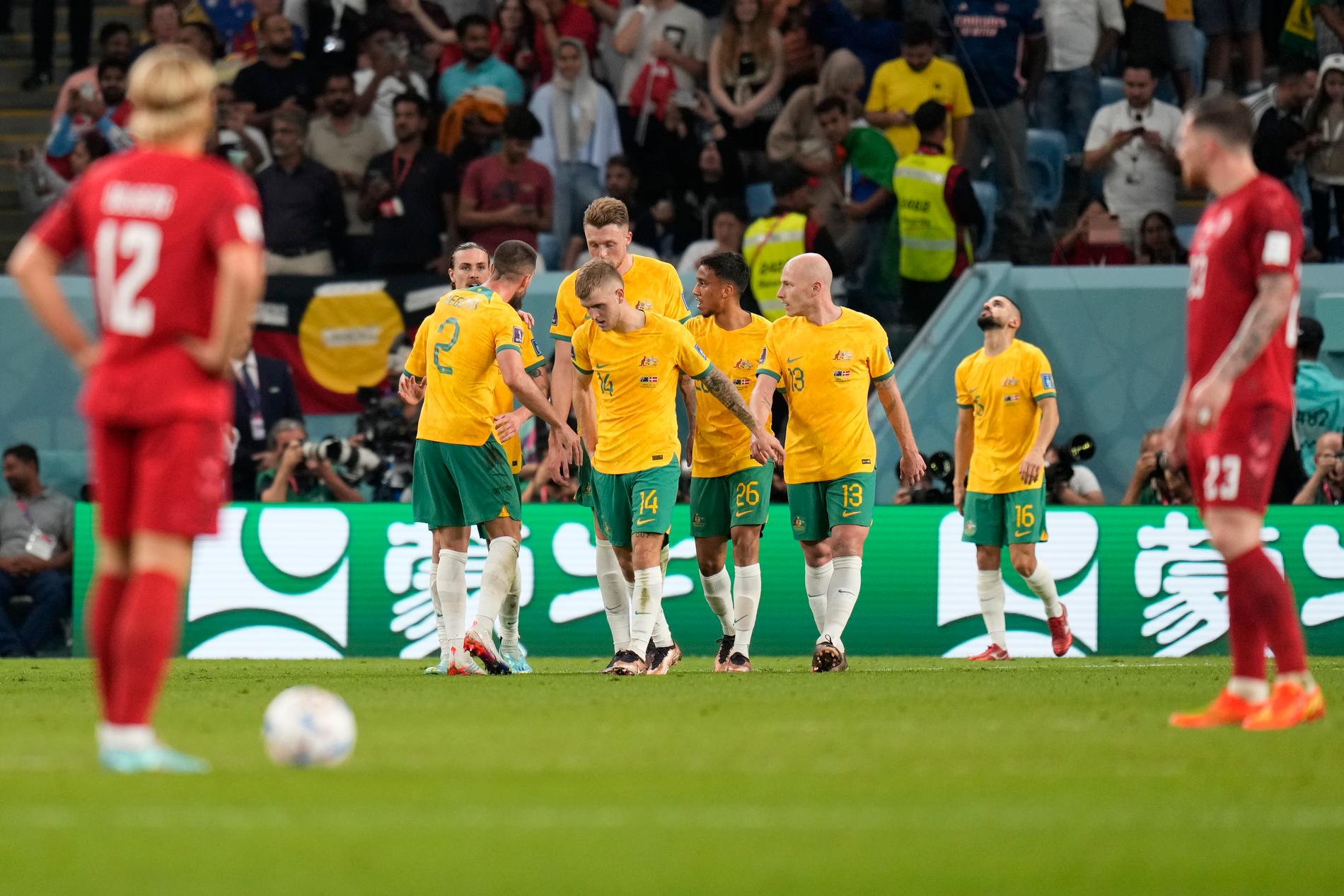Doha. The Australians from the southern hemisphere arrived in Qatar with a motivating line-up.
Now they stand exhausted and embrace each other in front of a shocking, fire-yellow corner.
With heads hanging high, Danes walks toward the exit—getting there on their own.
Has Denmark lost focus due to the double change? Or was it the news that Tunisia had advanced against France that caused the Australians to hit the gas?
Few others during the World Cup struck one with astonishment as this unassuming Southern Hemisphere football nation. As Matt Leakey raced towards the goal and dribbled the ball behind Kasper Schmeichel, not even the neutral at Al Janoub Stadium could refrain from declaring:
– Fabulous!
The worst of the tournament?
Earlier last fall, when the mandatory review of all participating nations took place, many pointed to Australia’s arrival in Doha as the tournament’s weakest team.
Qatar then? are you wondering Sure, but the Félix Sanchez gang has, after all, been in camp together for months and the host nation tends to over-perform. Another competitor, Costa Rica, relied on the feat in 2014 as proof that nothing is impossible.
The Australian national team, the nickname for Australian juveniles, can rarely boast of having a star-studded team. Mitch Duke became the first WC scorer to play in the second division (Japan!) Much speaks of mediocrity.
Many trips, one shirt.
Interesting Arnold Tactics
The atmosphere inside the arena was off the charts. A touch of fiery yellow in one corner, and a little red in the other. It was so quiet that every pass seemed to come with an imposed sound effect.
The match itself was not as dismal as the setting. However, Australia is a team that has limitations but also knows its strengths: well-organized defense and good behaviour.
A clear pattern throughout all group stage matches is that Graham Arnold wants his side to lean forward early in the game. This means that Australia, when in possession of the ball, pushes the left-back Behesh forward.
If no goal appears in, say, 20 minutes, the Australians drop back and settle into a comfortable defensive position. I have no evidence that it is actually an overt tactic. But it seems inconceivable that so many consecutive matches could happen by chance.

Hjulmand wasted no time
Denmark created some chances. Jensen managed to finish the ball straight past goalkeeper Matthew Ryan, who feinted the ball into a false half on another occasion before clearing it. However, the opponent’s interconnected four-way defense line was difficult to break.
At half time the whole group was scoreless with Australia still in second place behind France.
Kasper Hjulmand wasted no time. After the break, Rasmus Christensen was replaced by the more attacking Alexander Bah. Then Jensen and Martin Braithwaite also smoked opposite Mikkel Damsgaard and Kasper Dolberg.
It is in this context that Australia has stood up for massive change. Time and space stopped when Lekke shot 1-0, after which the stands quickly rebounded and exploded. The goal may not have been a complete shocker, but the situation was still amazing.
fiasco?
Denmark would become a ‘dark horse’ at the World Cup, but they have rarely shown the inclination to be able to keep up with the best of the tournament. Can it be called a fiasco? Against the backdrop of high hopes and an affordable package, it’s no doubt a huge disappointment.
Perhaps Hgulmand’s main problem was that he had not found a suitable striker. Three games were chosen, Dolberg, Cornelius and Braithwaite in each. Even there oozed potential miscalculations. Standing still helps you just a little bit along the way.
Australia can’t keep up with the best either. But they can run their own race, step on the pedal and slow down every second. Incredibly, they are in the last 16.
